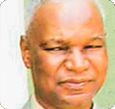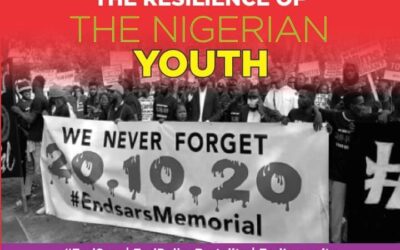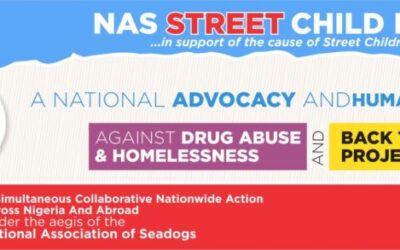The Court of Appeal on Tuesday affirmed the inalienable right of Nigerians and asscociations to hold rallies without police permit.
The court upheld the judgment of a Federal High Court which had, in June 2005, declared the Public Order Act, (Cap 382) Laws of the Federation of Nigeria, 1990, which requires Nigerians to obtain police permit before holding public rallies.
The Act makes it mandatory for individuals or groups to apply for and obtain police permit or approval to hold rallies and peaceful assemblies.
In its judgment, the appellate court, presided over by Justice Danladi Mohammad, held that such police approval infringed on the fundamental human rights of individuals and groups provided for in the 1999 Constitution.
“The provision of the Act are unnecessary. We are in a democracy and Nigeria has joined the league of civilised society,‘‘ Justice Olufunmilayo Adekeye, who read the lead judgment said.
The other member of the panel who gave a concurring judgment was Justice O.F. Omoleye.
The panel gave the judgment in an appeal by the Federal Government against the decision of the Federal High Court, Abuja.
The high court had, on June 26, 2005, voided the Act while giving judgment in a suit initiated by 12 political parties under the aegis of the Conference of All Nigerian Political Parties.
Justice Anwuri Chikere also issued an order of perpetual injunction restraining the Inspector-General of Police from preventing aggrieved citizens of Nigeria, including the plaintiffs from organising or convening peaceful assemblies, meetings and rallies against unpopular government policies.
According to her, the court held that the provisions of the Public Order Act (Cap382) Laws of the Federation of Nigeria (1990) were in conflict with the provision of Section 40 of the 1999 Constitution.
The COPP had, on April 2, 2004, written to the Federal Capital Territory Police Commissioner, Mr. Emmanuel Adebayo, for a permit, in line with the provisions of the Public Order Act, (Cap 382) Laws of the Federation of Nigeria, 1990 which requires the issuance of police permit to any group wishing to embark on a rally.
They wrote the letter following a proposed mass rally by the parties in protest against the 2003 general elections.
Section 1 of the Act makes it mandatory for a police permit to be procured before embarking on a rally,
After the controversial Kano rally, which was linked, (but not proved) to the death of the former Senate President, Dr. Chuba Okadigbo, the CNPP filed a suit at a Federal High Court in Abuja challenging the constitutionality of the Act.
The parties, through their lawyer, Mr Femi Falana, filed the suit on February 9, 2004 at the Federal High Court, Abuja, asking the court to restrain the FG from preventing their members and any aggrieved citizens from holding rallies in any part of Nigeria.
They asked the court to declare that the requirement of police permit for the holding of rallies was illegal and unconstitutional.
The parties posed the following questions for the court to answer:
Whether police permit or any authority was required for holding rally or procession in any part of the Federal Republic.
Secondly, the parties wanted to know whether the provisions of the Public Order Act which prohibit the holding of rallies or processions without a police permit are not illegal and unconstitutional by virtue of Article 11 of the African Charter on Human and Peoples’ Rights (Ratification and Enforcement) Act (Cap 10) Laws of the Federation of Nigeria of Nigeria, 1990.
The parties then urged the court to declare that the provisions of the Act which require police permit or any other authority for the holding of rallies or processions in any part of Nigeria, were illegal and unconstitutional. The court said they contravene section 40 of the 1999 Constitution and Article 7 of the African Charter on Human and Peoples’ Rights (Ratification and Enforcement Act.)
They sought a declaration that the Inspector-General of Police was not competent under the Public Order Act or under any law whatsoever, to issue or grant permit for the holding of rallies in any part of Nigeria.
The writ of summons was taken out on behalf of the parties by Falana.
In the affidavit attached to the writ, which was sworn to by Maxi Okwu, the General Secretary of the COPP, the parties stated that the IGP prevented them from staging a peaceful rally on May 29, 2003.
He averred that the solidarity rally organised by the All Nigeria Peoples Party in Kano, Kano State, on September 22, 2003, was disrupted by the Police on the grounds that no police permit was obtained.
“That in the course of disrupting the rally the police tear gassed the crowd and the ANPP leaders, including, Dr. Chuba Okadigbo who died barely 24 hours later,” Okwu said.
Government, in defending the suit, filed no counter-affidavit, as its representatives came to court asking that the entire suit be dismissed.
The high court judge had refused and heard the matter.
She not only answered the two fundamental questions in favour of the political parties, she also granted all the prayers they sought.
The plaintiff political parties in the case included; ANPP, National Conscience Party, Peoples Redemption Party, National Democratic Party, Democratic Alternative, APGA, PAC, Peoples Salvation Party, United Nigeria Peoples Party, MDJ and Community Party of Nigeria.
By Tobi Soniyi, Abuja
The Punch
Wednesday,December 12, 2007




